Best fast-growing trees for privacy – 5 varieties to quickly create a natural screen
These trees are perfect if you want to create a natural garden screen as soon as possible
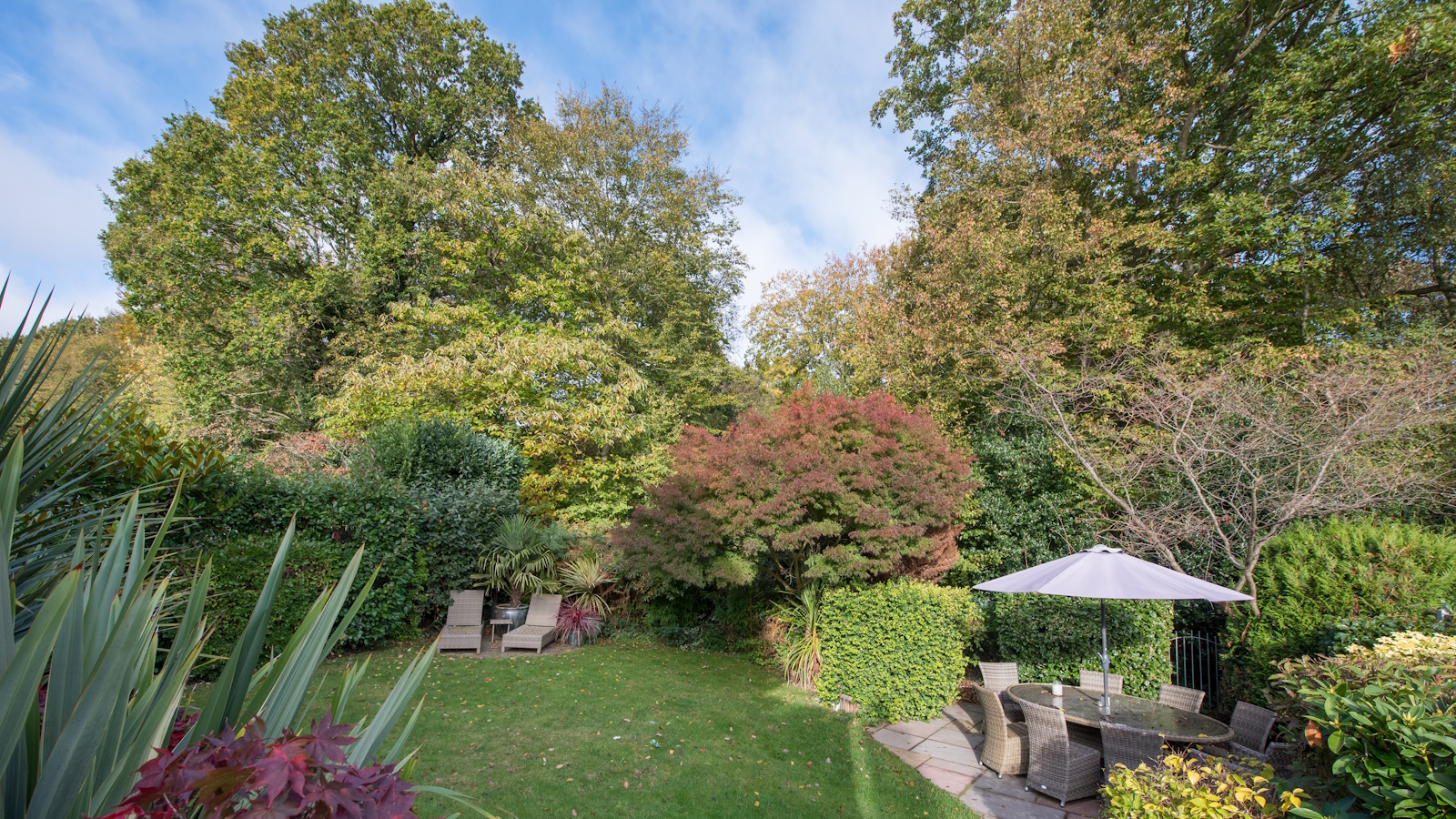

Now that the weather is getting warmer, there's no doubt we'll be spending more time in our backyards. But the feeling that anyone could look in at any moment can be off-putting.
That's where garden screening comes in, creating natural screens to offer privacy in your yard that also look beautiful - whether its using ornamental grasses for privacy or planting trees for privacy. Sometimes when you're keen to conceal your yard, looking for fast-growing trees is the best option.
Well, look no further. Experts have shared with us the best fast-growing trees for privacy so that you can create a garden screen in no time.
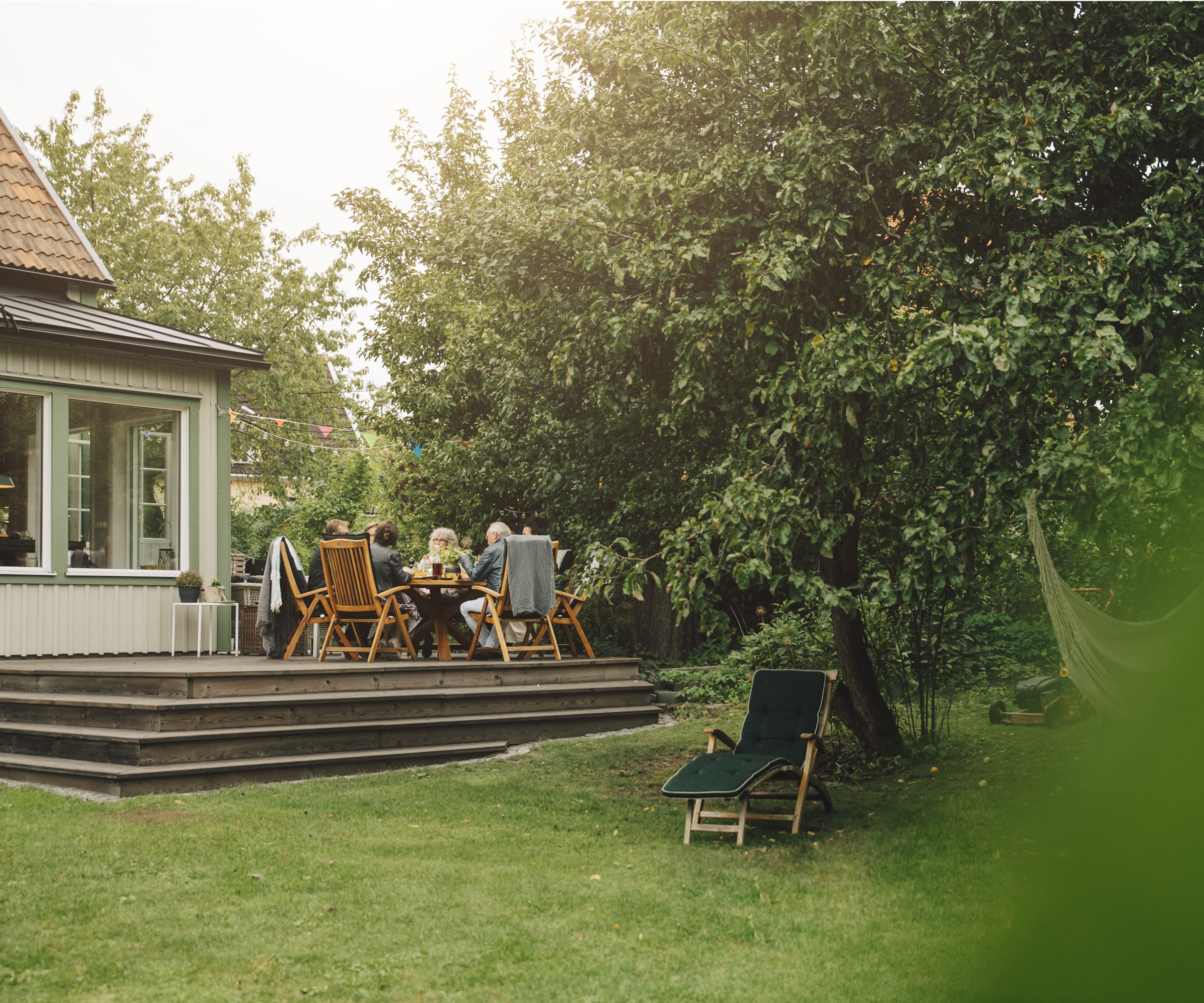
5 fast-growing trees for privacy
Sometimes there just simply isn't enough time to wait for trees to grow large enough to create a garden screen, so we've compiled an expert list of the best fast-growing trees for privacy so that you can enjoy an enclosed backyard sooner.
1. Weeping Willow for full coverage
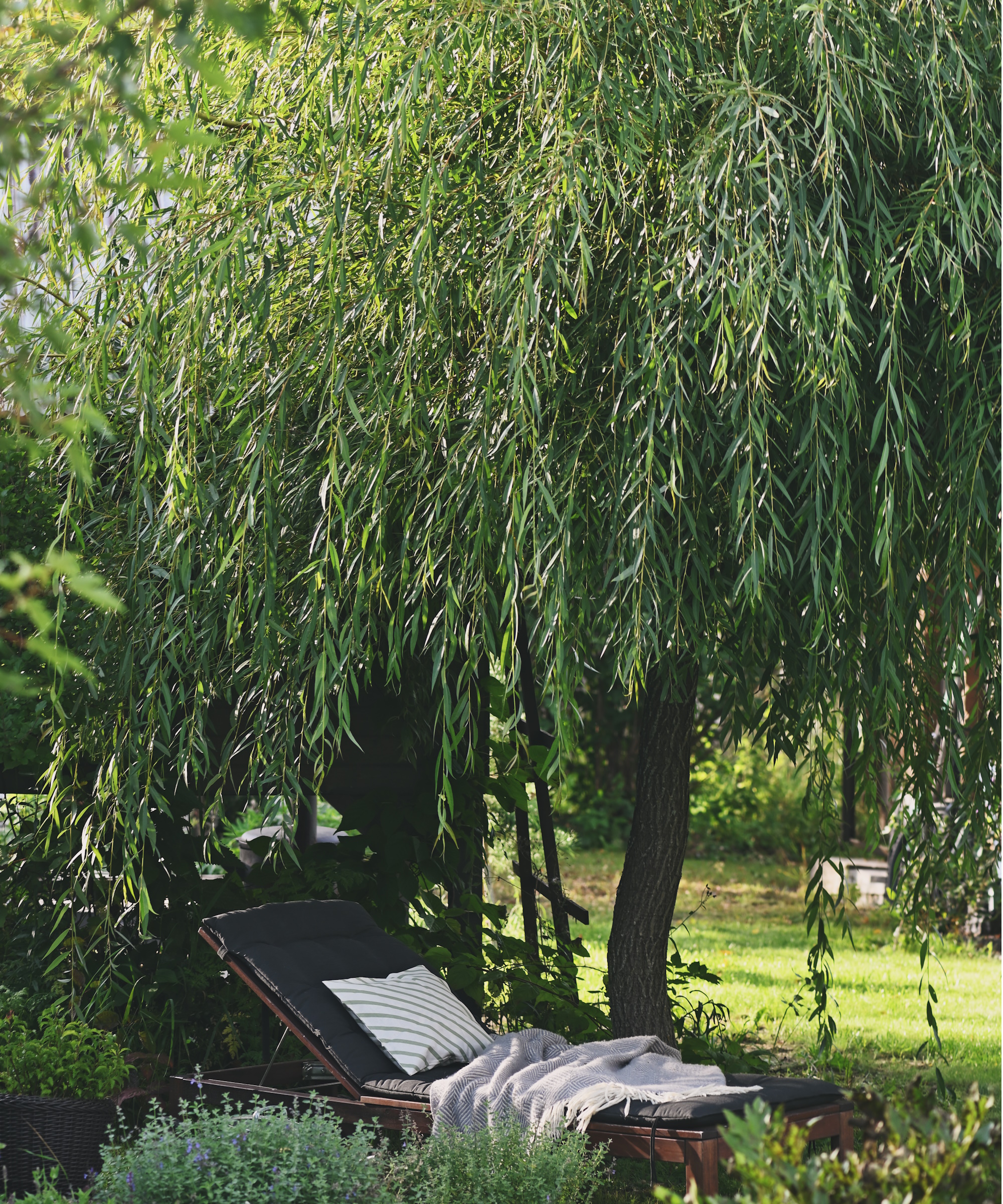
If you're in need of a tree that provides full coverage but also want something that offers interesting shape and texture, a weeping willow is perfect. It's one of the best trees for shade, providing not only screening but also a space to sit beneath its draping foliage.
'Willows are great because they grow quickly and are fairly dense, which is great for privacy. They can give you a good deal of shade and do best in close proximity to a garden pond,' says Darren Muzzy, tree expert at Michigan Tree Experts.
Growing at a rate of around 4 feet per year, these trees can grow very large and are not suitable for small backyards. You should also aim to plant them away from any underground pipes to avoid their roots causing damage. But if you do have the space for them, weeping willows are a great option for offering plenty of privacy.
Weeping willow trees thrive in US hardiness zone 6 to zone 8 and can be bought from suppliers online, like this weeping willow tree from Fast Growing Trees.

Darren Muzzy currently serves as the Director of Sales & Operations at Michigan Tree Experts. Born in California and now rooted in Michigan, Darren is a renowned tree care and gardening expert.
2. Leyland Cypress for a solid screen
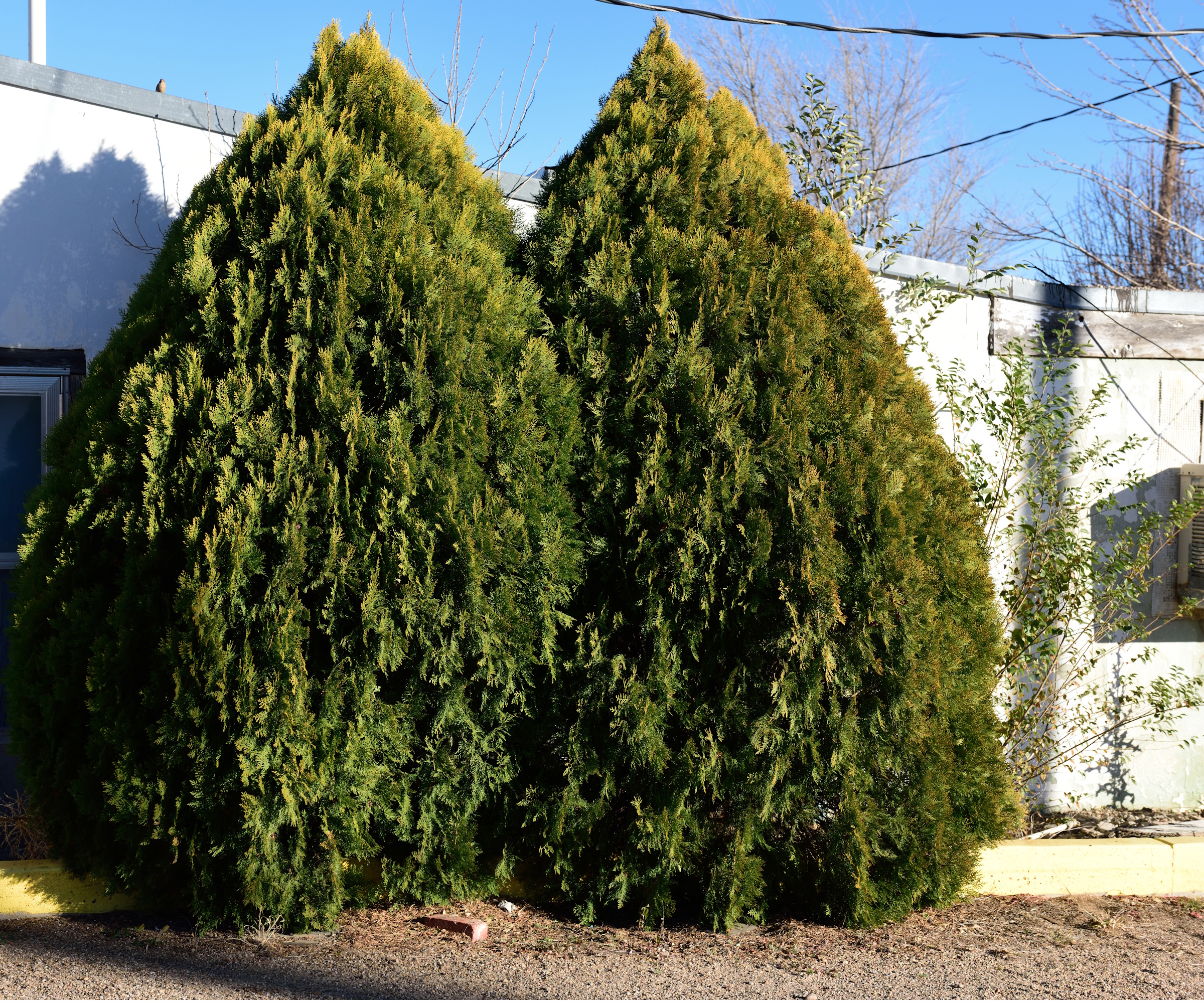
Leyland cypress trees are great for creating a solid garden screen. This is one of the fastest growing conifer trees with bushy growth to conceal your backyard.
'Consider evergreens like Leyland cypress. These trees are low-maintenance and grow fast, forming a thick living fence in just a few years,' says Evan Torchio, tree expert and CEO of Tree Mender. 'Planting them in the spring as soon as the ground thaws is ideal. Space them 5-6 feet apart for a solid barrier,' he adds.
They grow best in US hardiness zone 6 to zone 10, growing around 4 feet per year as young trees. Leyland cypress is also considered to be a drought-tolerant tree, making them a good choice for warmer climates.
Find Leyland cypress trees online, like this Leyland cypress from Fast Growing Tees.

Evan Torchio is a plant expert and the CEO and Founder of Tree Menders. He earned a bachelor’s degree in forestry and is a member of the International Society of Arboriculture. Evan provides advice on indoor and outdoor plants.
3. Eucalyptus for screening above a fence
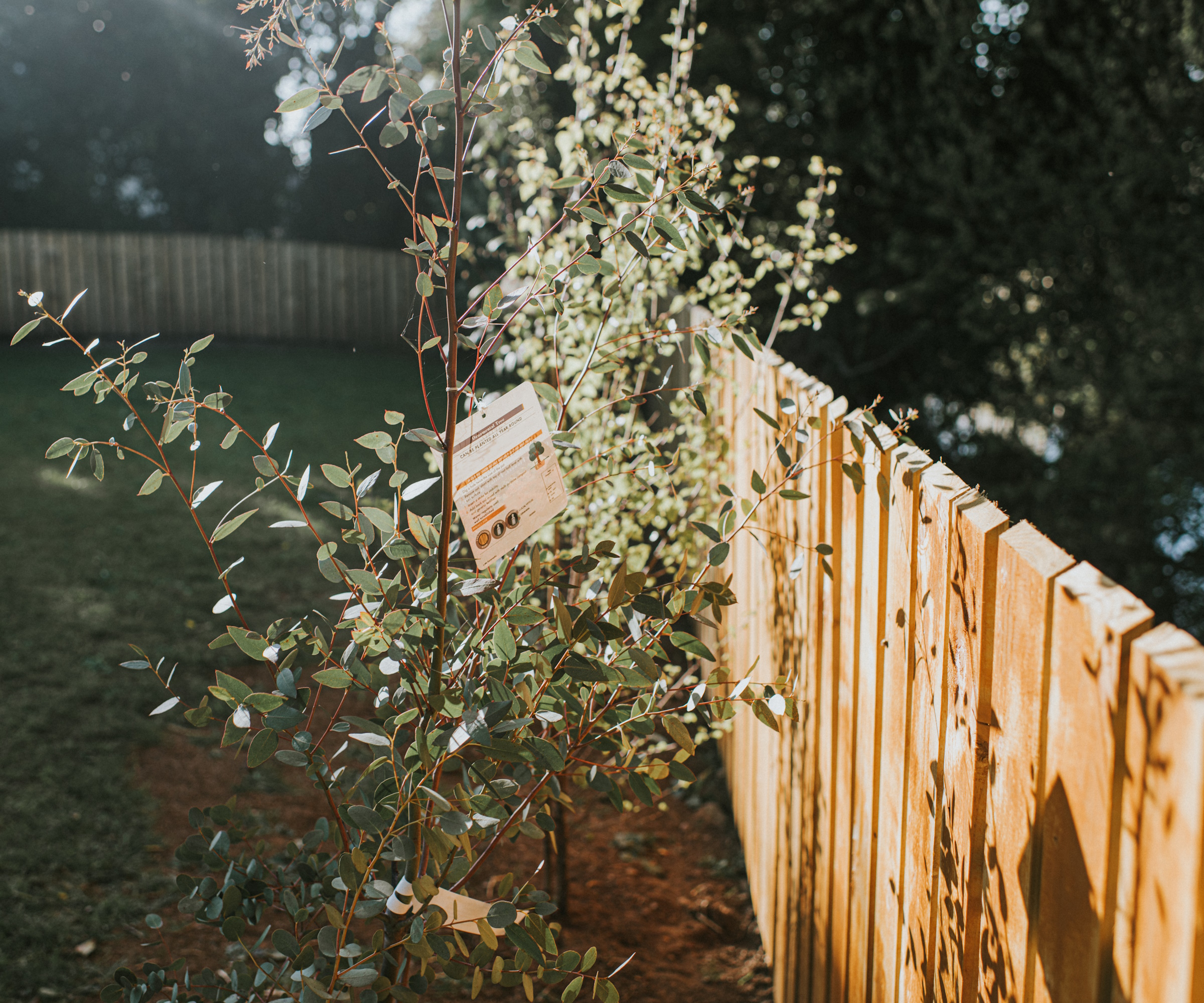
Growing eucalyptus trees is easy and there are varieties in a range of sizes, making them great privacy trees for small backyards and large backyards alike.
'Eucalyptus trees provide excellent privacy because of their rapid growth and dense foliage. These resilient trees give excellent privacy returns at a low maintenance cost,' says Darren.
Eucalyptus trees produce beautiful silver foliage that can peak over the tops of garden fences, adding height and extra privacy to your yard. They grow up to two meters each year and have a pleasant, fresh smell that also makes them a good addition to a fragrant garden. Pruning them regularly will ensure they grow wider and bushier, rather than tall and thin.
These trees do best in US hardiness zone 8 to zone 11.
4. Bamboo for a natural wall
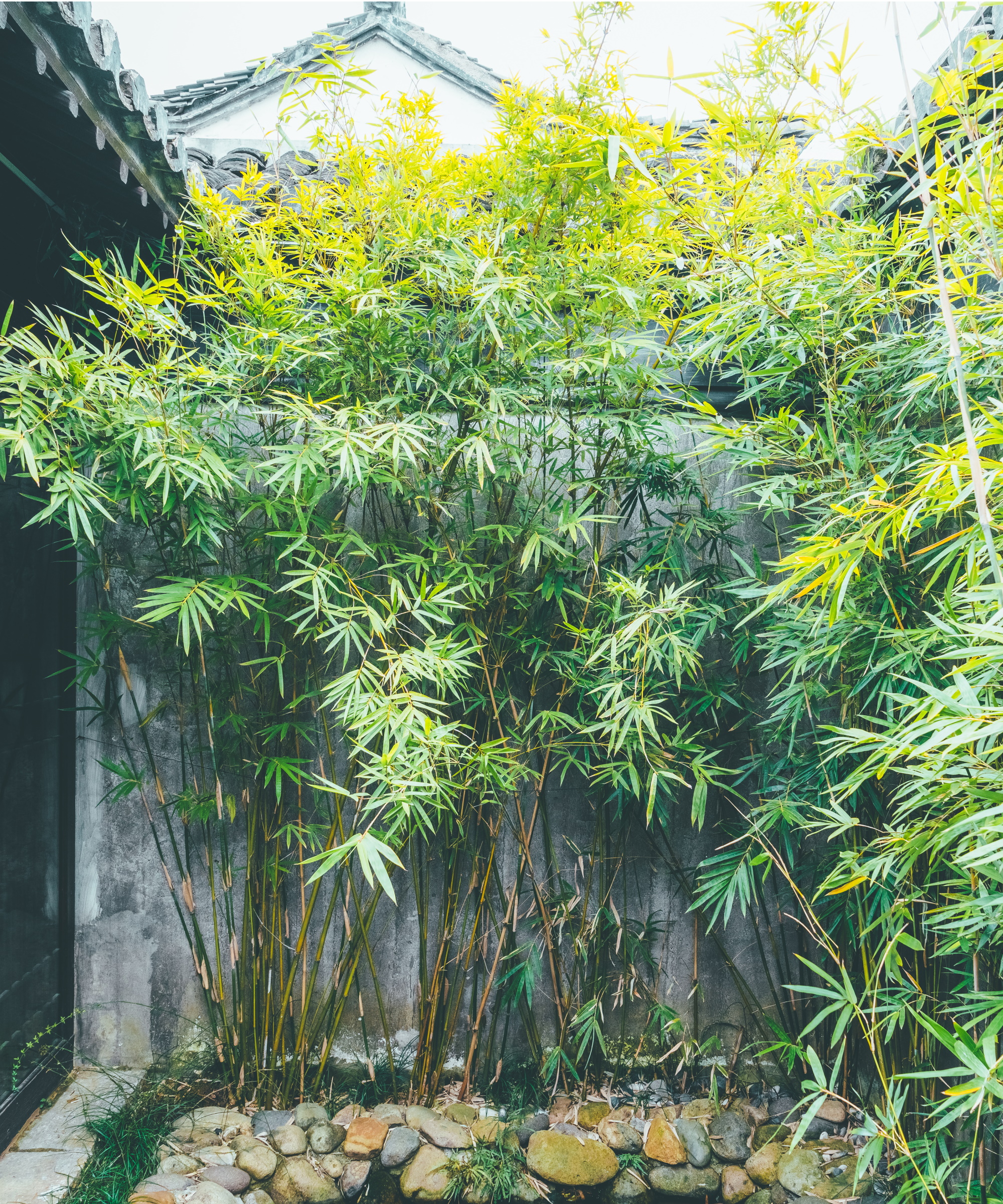
There's a type of bamboo for nearly every backyard, as it grows in US hardiness zone 4 to zone 10 and comes in a range of sizes. You do have to be careful when growing bamboo in your backyard, however, as it can quickly spread.
'Bamboo can grow extremely quickly and thickly, forming an almost impenetrable wall, even though it is not technically a tree,' says Darren. 'Bamboo can be a quick and stylish fix for smaller spaces that require seclusion. But be aware that they may need to be controlled,' he adds.
It's worth researching how to stop bamboo spreading if you are considering using it for privacy, such as growing it in a large barrel-like container, but otherwise it is a reliable option for creating a garden screen fast.
Discover different bamboo plants online, like this graceful bamboo plant from Fast Growing Trees and this multiplex bamboo from Fast Growing Trees.
5. Paper Birch for a statement screen
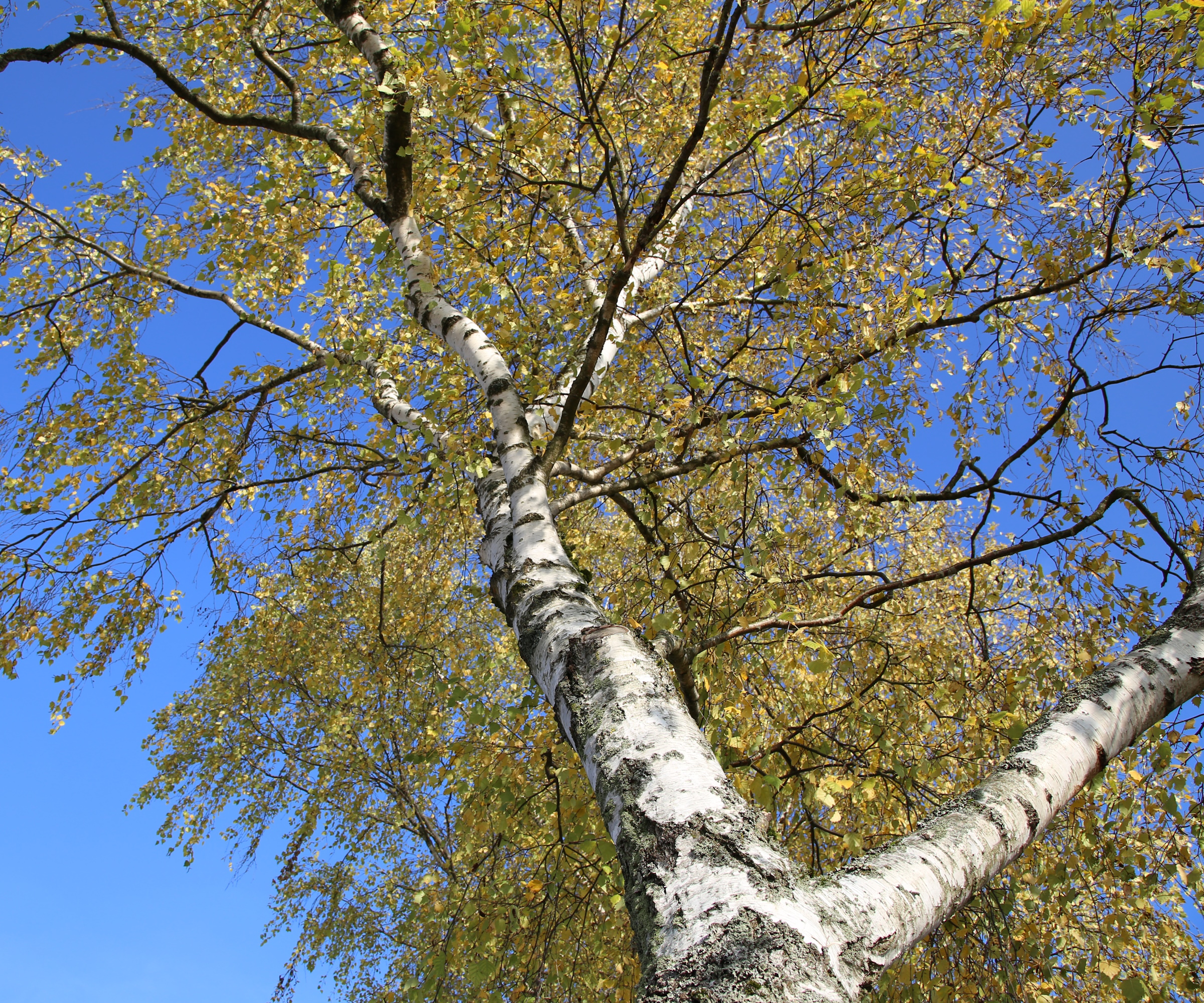
It's possible to create garden screens that are also a focal point in your yard and many statement trees are the perfect fit. A paper birch tree is a tree with white bark that grows fast, offers coverage and can provide a pretty white backdrop to your backyard.
'With its recognizable peeling bark, paper birch trees can also offer seclusion. It reaches maturity quickly and its layered branches provide reasonable coverage,' says Darren.
You'll also notice your birch tree leaves turn a beautiful yellow color in fall, contrasting against its stark bark. 'This tree's eye-catching white bark further enhances the picturesque aspect of your landscape,' says Darren.
Paper birch trees are among the fastest growing birch trees, growing around 2 feet in one season. They grow best in US hardiness zone 2 to zone 6 and do best in full sun.
Find a paper birch tree for your yard online, like this paper birch tree from Nature Hills.
FAQs
How do I plant a natural garden screen?
You might want to create a garden screen in your yard if you want more privacy. The best way to plant a natural garden screen is by identifying what kind of privacy you want to create. If you want to create a screen with full coverage, consider planting a mixture of trees and shrubs for different heights to cover different gaps and add textural interest. There are plenty of fast-growing varieties that will help you have a garden screen in no time.
Garden screening is essential if you want to bring more privacy to your yard. By planting fast-growing trees for privacy, you can create a beautiful garden screen quickly. Make sure to read up on garden privacy mistakes when planning your garden screen to ensure you plant your trees effectively.
Sign up to the Homes & Gardens newsletter
Design expertise in your inbox – from inspiring decorating ideas and beautiful celebrity homes to practical gardening advice and shopping round-ups.

Tenielle is a Gardens News Writer at Homes & Gardens. She holds a qualification in MA Magazine Journalism and has over six years of journalistic experience. Before coming to Homes & Gardens, Tenielle was in the editorial department at the Royal Horticultural Society and worked on The Garden magazine. As our in-house houseplant expert, Tenielle writes on a range of solutions to houseplant problems, as well as other 'how to' guides, inspiring garden projects, and the latest gardening news. When she isn't writing, Tenielle can be found propagating her ever-growing collection of indoor plants, helping others overcome common houseplant pests and diseases, volunteering at a local gardening club, and attending gardening workshops, like a composting masterclass.
-
 Miley Cyrus breaks a cardinal decorating rule with her 'floating table' – her unexpected layout transforms a dead space into a stylish breakfast area
Miley Cyrus breaks a cardinal decorating rule with her 'floating table' – her unexpected layout transforms a dead space into a stylish breakfast areaThe singer tosses aside the maxim that furniture shouldn't be floating in the middle of the room with an innovative kitchen layout
By Sophie Edwards Published
-
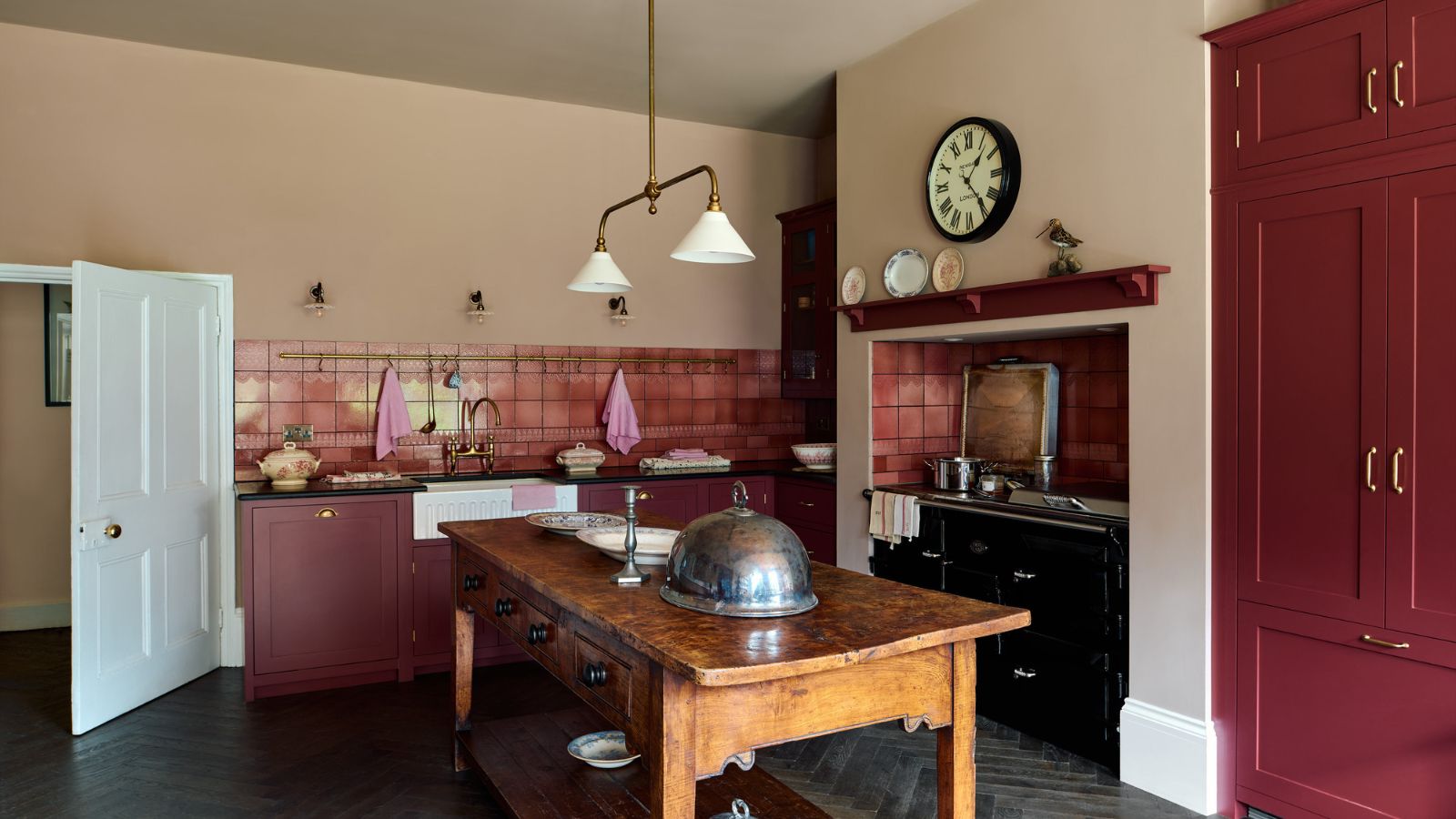 It’s a concept straight out of a fashionista's playbook, but I used the Sandwich Method to organize my kitchen shelves – it’s never looked sleeker
It’s a concept straight out of a fashionista's playbook, but I used the Sandwich Method to organize my kitchen shelves – it’s never looked sleekerIt transformed messy to mesmerizing in a matter of seconds
By Punteha van Terheyden Published